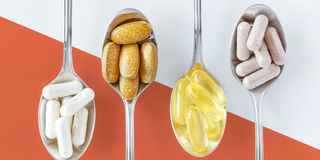Taking your vitamins? New study links Covid to deficiency

The researchers recommended the use of vitamin D supplements among people with deficiency as one way of lowering their risk of contracting the coronavirus infection.
What you need to know:
- Previous study showed that vitamin D deficiency significantly raised the likelihood of becoming infected with the coronavirus.
- This was after the study by the University of Chicago Medicine found that people who had vitamin D deficiency of less than 20ng/ml were almost twice as likely to test positive for Covid-19.
In September, a study of patients who had tested positive for Covid-19 found that vitamin D deficiency was a key driver for the viral disease.
This study showed that vitamin D deficiency significantly raised the likelihood of becoming infected with the coronavirus. This was after the study by the University of Chicago Medicine found that people who had vitamin D deficiency of less than 20ng/ml were almost twice as likely to test positive for Covid-19.
About a month later, medical researchers working around Sars-Cov-2 have confirmed the majority of hospitalised Covid-19 patients are now recording high rates of vitamin D deficiency.
Among these patients, the number of men who have tested positive for Covid-19 with vitamin D deficiency is significantly higher than that of women.
For example, in one hospital with 200 Covid-19 patients in Spain, over 80 per cent were reported to have vitamin D deficiency.
The researchers have now recommended a treatment routine that involves early correction of vitamin D deficiency.
Lower risk
“One of the most effective treatment approaches should now be to identify and treat vitamin D deficiency, more so in high-risk individuals such as the elderly, patients with comorbidities and nursing home residents,” said Dr Jose Hernandez who led the team of researchers.
“This approach may have beneficial effects in both the musculoskeletal and immune system.”
However, apart from raising the risk of infection, the researchers did not find a direct link between vitamin D concentrations or deficiency and the severity of Covid-19. The findings were published in the Journal of Clinical Endocrinology & Metabolism.
The researchers recommended the use of vitamin D supplements among people with deficiency as one way of lowering their risk of contracting the coronavirus infection. “Vitamin D is critical to the function of the immune system,” said Dr David Meltzer, the chief of Hospital Medicine at UChicago Medicine.



